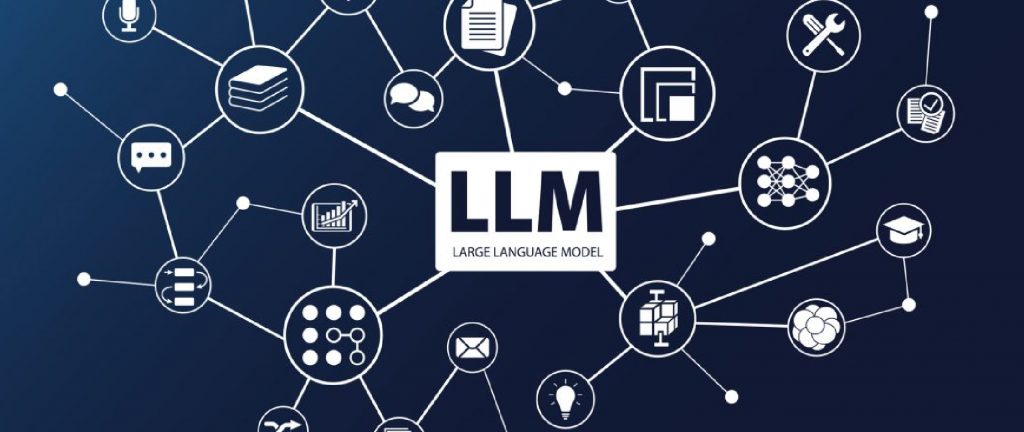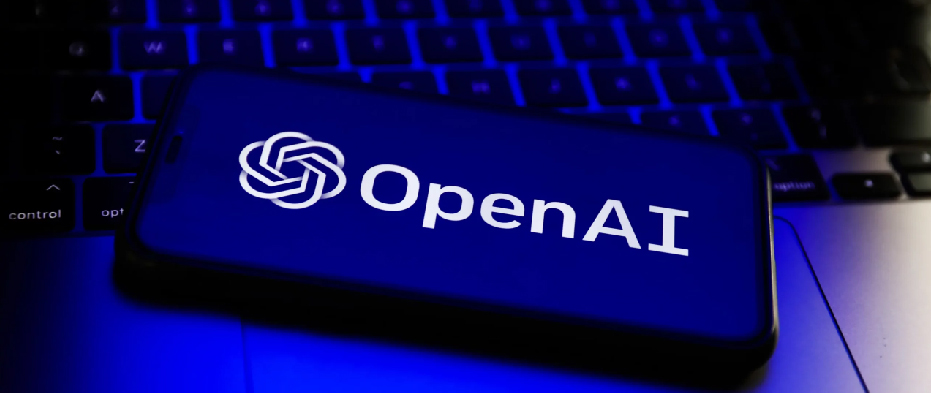From a figment of one’s imagination to a strong force reshaping our world in 2023. Can AI transform the dark web and its URLs from what we know now? The dark web, known for its illicit activities, might go under a paradigm shift as AI technologies are integrated.
AI can change the dark web URLs as we see them now; with advancements and natural language processing machines, AI algorithms might better understand the context and intent and can improve the categorization of URLs, even predicting possibly harmful or illegal content.
When looking at AI and its traditional machine learning capabilities, chatbots, and robotic process automation, you can see how it has evolved within a few years. AI-driven cybersecurity tools can also enhance the identification of hidden services.
In recent years artificial Intelligence has been evolving rapidly, showcasing how it could transform the life of humans. 2023 has been a great transforming year for AI as it is growing and evolving, raising many questions for governance, society, and the economy.
AI has gained much attention and interest from every other organization worldwide. Almost all organizations in business Generative Artificial Intelligence tools have been used for product and service development. The dark web has a bad reputation for hosting illegal and harmful content. However, AI’s content moderation and filtering capabilities could significantly alter this landscape.
However, AI can automatically identify and remove illicit content through machine learning algorithms, making the dark web a less attractive platform for criminals to commit horrible activities. This transformation will decrease the visibility of harmful content and create a more controlled, slightly different, and safe online environment.
Large Language Models (LLM) Transforming the URLs

Large Language Models like GPT-3 can contribute to transforming dark web URLs through their ability to generate text that mimics human language. LLMs can create difficult, diverse, and frequently changing URLs that can be impossible to identify by automated tools or traditional methods.
Therefore, LLMs can make it more difficult for cybersecurity systems and law enforcement to track malicious activities on the dark web. However, it’s important to note that these advancements in obfuscation in that the URL is not as confidential and encrypted but is in a readable form and can be easily understood.
It can be used for legitimate security reasons, such as developing countermeasures against cyber threats. In the hidden layers of the Internet, known as the deep/dark web, where secrecy keeps enhancing, and anonymity reigns, technological evolution is quickly and quietly reshaping the landscape.
Artificial Intelligence, a digital chameleon, can decode patterns, mimic and predict their outcomes, and surreptitiously infiltrate the dark web realm. As it does, the shady URLs that once connected unreliable entities are undergoing a great transformation, opening the door in an era where even the hidden corners of the digitally growing world are not immune to AI’s transformative powers.
AI and the dark web can revolutionize URLs and criminal activities and are considered that we have been associating with the hidden layers and the dark world of the Internet. Transforming dark web URLs with the help of AI involves technological advancements, ethical considerations, legal frameworks, and international collaboration.
AI can Predict Threats within the Dark Web
AI can transform the dark web and broaden the efforts of law enforcement. Predictive policing algorithms powered by AI can predict and analyze patterns of criminal behavior, and where that certain type of crime will occur can also read all the threats within the dark web.
This proactive approach will allow authorities to take preventive safety measures to disrupt illegal operations and activities and to catch cybercriminals before they can cause any harm to anyone.
Thus, the URLs associated with criminal activities on the dark web might reduce with the increasing involvement of AI.
Cybersecurity Experts and Cybercriminals
There has always been a cat-and-mouse game between cybersecurity experts and cyber criminals, increasing the crimes on the dark web. However, AI is emerging, reshaping the cybersecurity system and canceling out in favor of cyber defenders.
You can enhance your anonymity and privacy through AI. AI-powered systems can help users navigate the dark web without leaving their digital footprints, making their location traceable.
AI-driven cybersecurity systems can identify weak security systems and threat sources, detect invasion attempts, and respond to emerging threats immediately. As these measures build strength, the dark web’s URLs might become less exploitable, discouraging cybercriminals from promoting attacks and eventually leading to a safer and more secure online environment.
As AI technologies continue to advance and enhance anonymity, its predictive policing and cybersecurity measures will reshape the current landscape of the dark web.
Where so much is already going on within these deep layers of the Internet, it might be hard to believe, but there is a glimpse of hope, a little possibility that the dark web’s reputation for criminal activities might vanish, starting in a new era of security and accountability which may sound unrealistic now because of quickly growing hidden world which now covers 95% of the Internet.
Disinformation and Fake News
AI chatbots can spread false information, fake news, or propaganda on social media platforms. They can exploit people’s trust in the technology to mislead the narratives, possibly causing confusion and panic or even influencing the public’s opinion.
Data Mining and Privacy Violations
AI chatbots can engage users in different kinds of conversations. It can invade their privacy by asking for their personal information, preferences, and habits. Now they can use this data for targeted advertising, identity theft, or even blackmail the user.
Automated Attacks on Systems
AI-powered bots can automate attacks on websites, apps, or systems, overwhelming them with requests and causing service disruption or data breaches.
Such Distributed Denial of Service (DDoS) attacks can be arranged more effectively and at a larger scale with the help of Artificial Intelligence.
Manipulating Online Discussions
Malicious actors can use AI chatbots to influence and control online discussions, reviews, or ratings by posting biased or fake comments. Now these actors can manipulate the perception of people and influence their decision-making.
Generative Artificial Intelligence tools
Generative Artificial tools fall under the broad category of machine language. This Gen AI tool is about taking your creativity to the next level by typing whatever you want; it can generate music videos, pictures, songs, art to virtual worlds, and whatnot. From creating new product designs to business plans, these Gen AI tolls have got it all. They can generate text without grammatical errors with perfect tone and narrative flows.
Here are some generic AI tools commonly used on the surface web.
- ChatGPT
- GPT-4
- Alpha Code
- Bard
- Synthesia
- Cohere Generate
- GitHub Copilot
- Claude
- Bardeen
- Style GAN
- Rephrase. Ai
- Copy. Ai
- Type Studio
- Descript
- Chat Flash
Gen AI tool ChatGPT by OpenAI

What is ChatGPT? (GPT stands for generated pertained transformer) ChatGPT is currently the most famous example of a Generative AI tool that could be given; this AI chatbot is receiving so much attention and is getting very popular among all organizations. OpenAI developed it and got in public in November 2022. More than a million people signed up in the first five days since its release public.
And 100 million users worldwide in the first two months of its launch. No doubt because of its ability to generate creative text or any content. It has been popular since its release, but the AI chatbot also has consequences, as it can be used for illegal work.
Wondering how? Well, there is a new app inspired by the ChatGPT style named FraudGPT. It is being advertised on the darkweb and Telegram. This AI chatbot can be used for writing phishing emails and has been able to create content to facilitate cyber criminals.
Digging Deeper into FraudGPT
The FraudGPT is an AI chatbot used on the dark web by cybercriminals to commit malicious attacks; it’s the ability to create and generate contextually appropriate content it has been facilitating to the hackers on the deep/dark web. It gets updated almost every week. FraudGPT can also create fake landing pages asking visitors to give their information.
This AI chatbot is only used for malicious activities and can help hackers and cybercriminals save much time. It is mentioned that these chatbots can generate fake emails to target a particular individual and look genuine to the person, and it would be convincing to trust these scams. It can even design legitimate phishing pages, and people would get victimized and reveal their online accounts’ sensitive data or details.
Phishing Attacks by AI Chatbots
These AI chatbots are programmed to imitate legitimate websites and organizations to commit phishing attacks, send malicious emails, and gather users’ personal information. It would be hard to tell if those are the actual links, sites, or some kind of scam, as AI can generate contextually appropriate content.
Scam calls using AI
People can now clone the voice of any member of their family. It sounds scary, but it is already happening in the world where scam artists can make fake calls using Artificial Intelligence technology; they can ask about personal details and locations or request money, charities, or donations.
ChatGPT Being Used by the Cybercriminals

The famous AI chatbot ChatGPT allows cybercriminals to do the same crimes as on any other website or chatbot like FraudGPT. Because of the AI tools, security systems won’t immediately give these criminals the desired results; however, they can manipulate it to write anything they want, no matter how illegal.
According to a report, these cybercriminals want to exploit this popular chatbot (ChatGPT). For a quiet time, they have planned to hack ChatGPT, which currently is one of the hottest topics on the dark web. They are discussing how to create malware in Artificial Intelligence and how ChatGPT can be used to commit cyber-attacks.
AI is helping cybercriminals make their work easy by allowing them to generate malicious links and harmful content by typing and getting the desired results.
OpenAI developer of ChatGPT research confirms that their chatbots are trained to decline inappropriate, malicious requests, but we have witnessed that previously it allowed users to produce basic malware.
There are no two ways about the fact that ChatGPT was originally designed to help humans be more creative and can save time as well. It can perform tiresome tasks and simplify complex things, but with good comes bad. Cybercriminals can use it for various inappropriate purposes. These chatbots can be a missing part of their illegal activities.
Users of ChatGPT continue to grow every day. The traffic rose by 83 percent in February. Fastest growing digital, unlike the growth of other platforms like Instagram and Tiktok, which took around 2.5 years to build a similar audience as ChatGPT.
Selling Stolen ChatGPT Accounts on the Dark Web
Thousands of stolen ChatGPT accounts are being sold on the dark web markets. Cybersecurity says that 200,000 OpenAI logins were seen on the dark web because this Internet layer is hidden and cannot be accessed through a special browser.
These criminals can also use the premium version without subscribing to its premium offers. Hackers and cybercriminals steal these AI chatbot accounts, meaning these malicious actors can access account credentials and your chat histories, browsing history, and cryptocurrency wallets sold on the dark web marketplaces, and people will be willing to pay many dollars for this information.
It was reported that many premium ChatGPT accounts were even sold on the dark web. Some accounts were shared for free. It was reported that in March, cybercriminals had unlimited access to ChatGPT. OpenAI tries to authorize and authenticate the users. They encourage users to keep strong passwords and should only install authentic software on their computers.
Cybercriminals are trying to weaponize the technology by exploiting ChatGPT, creating malware, and finding ways to hack AI tools to attempt cyber-attacks.
One cybercriminal was advertising a premium ChatGPT plus account for a lifetime for sell only for $60 with a hundred percent satisfaction guaranteed. However, the legitimate price for a ChatGPT account’s lifetime account by OpenAI is $20 monthly.
WormGPT

Another Gen Artificial Intelligence tool used on the dark web is WormGPT. It has no limitations or boundaries for users. It is also known as the evil twin of ChatGPT. It allows hackers to commit crimes and perform attacks. Unlike OpenAI’s ChatGPT and Google’s Bard, which have built-in protection WormGPT is designed only to facilitate criminals and their horrible activities.
The experiment done on the WormGPT showed how it can write an email that is so convincing and strategically deceiving, showing how it can produce phishing emails and attack the user. WormGPTs anonymous user even showed that this AI chatbot could write code for malware attacks and create phishing emails for scamming people.
It is called the evil twin of this AI chatbot. However, WormGPT is the biggest enemy of ChatGPT as it allows users to create phishing attacks and do all types of illegal work. Cybercriminals can exploit Large Language Models (LLMs) by committing crimes, frauds, and imitating to be someone with a stolen identity.
Before the advancement of AI tools, pointing out phishing scams was easy; with grammatical or spelling errors, it was very easy to tell. But now, it is impossible to tell because it writes like a legit organization, so it looks realistic and convincing to the user.
FraudGPT and WormGPT
Criminals have made their own ChatGPT-like tool to threaten the digital safety of users surfing online with malicious links and websites. Some users had created a tool called WormGPT which was developed in March 2021 and intended to help cyber criminals.
The advertisement targets an English-speaking audience. It mentioned “the biggest enemy of ChatGPT” It also stated what WormGPT could do, including that it could suggest writing malware.
WormGPT and another malicious LLM showed named FraudGPT. It is being advertised on various platforms, including the dark net and Telegram channels. FraudGPT was advertised as an “Unrestricted alternative for the ChatGPT.”
FraudGPT prices can differ on different boards, but it is difficult to determine whether these are the actual prices on the dark web or the personal greed of the author. The advertisement also showed a demo video of the capabilities of a FraudGPT.
FraudGPT is a great tool for cybercriminals to create phishing pages, undetectable malware, write malicious codes, and learn hacking.
FraudGPT and WormGPT may not be the perfect product now; however, it is concerning that Artificial Intelligence is in the hands of cybercriminals and can be used as a weapon to exploit many legitimate pages, websites, and businesses. There is no going back for these malicious websites, and these cyber criminals only continue to grow in the future.
FAQ
The Dark web URLs are transformed through Large Language Models (LLMs). They are diverse and will keep changing the URLs, making it difficult to read by traditional methods.
ChatGPT is an AI chatbot that is completely safe; however, cybercriminals can manipulate this chatbot’s system by using it in malware and committing phishing attacks.
AI is rapidly growing and transforming because this computer can store massive amounts of data and accept that AI is the future of humanity in every organization, as this is a driving force for emerging technology like robotics.
Yes, Artificial Intelligence can spread false information, fake news, or propaganda on social media platforms. They can exploit people’s trust in technology.
AI has evolved so much in the year 2023. It is taking over different industries like finance, agriculture, transportation, and manufacturing; they all have witnessed radical transformation.
Well, they both might serve the purpose of being a Gen AI tool but are very different from each other the main difference can be ChatGPT is used on and by Surface web users, which can be easily accessible, and WormGPT is used by the dark web, users for illegal uses like phishing attacks.
A free VPN service provided by an app called SuperVPN turned out to be a data breach and leaked data of 360 million users.
Yes, using free VPNs is not as safe for us as the ones we pay for. They have low-level encryption and can leak your private data. They can also put your data for sale on illegal marketplaces. Free VPNs have a higher risk of malware, so they can be harmful and dangerous if they are free.
Wrapping Up
In a world full of technological advancements, everything is transforming daily. Artificial Intelligence has evolved so much and has been growing within a few years they have taken off completely. AI can transform the dark web’s URL. They will fall into categories and maintain their encryption and secrecy by making them almost unreadable by traditional methods. The year 2023 will be the most important in history. AI is not fiction, not just an idea. It has become a reality in our daily lives. It does empower humanity, but it does come with its consequences.
As AI is growing and expanding and has a great influence on people. The AI chatbots can be helpful sometimes, like ChatGPT, yet threatening, like WormGPT and FraudGPT. It can invade your personal information and business details and threaten your security.
To reduce these potential risks, developers and organizations must implement safeguards such as authentication measures, content moderation, and ethical guidelines for AI chatbots. Users must also be cautious while interacting with AI-driven conversations, especially when sensitive information or actions are involved.
